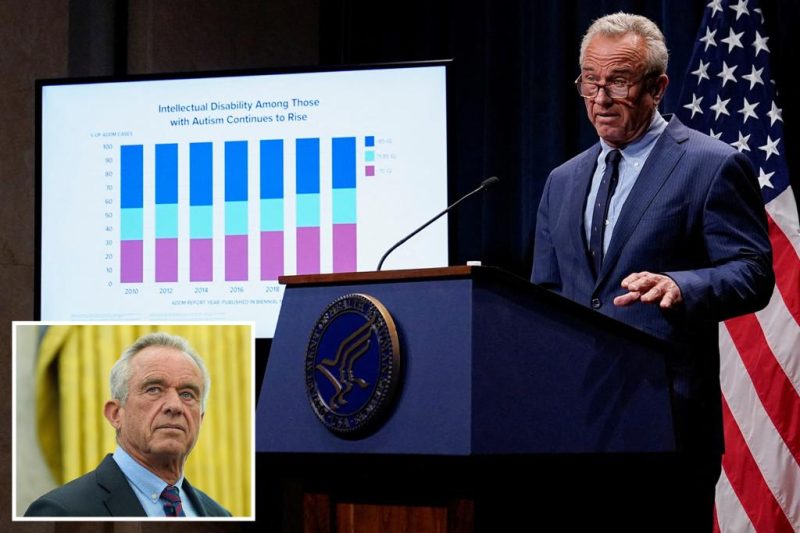
Robert F. Kennedy Jr., a prominent figure known for his outspoken views, has recently made a controversial statement regarding autism, declaring it an ‘epidemic’ that surpasses the scale of the COVID-19 pandemic. This declaration has sparked immediate debate and criticism within the scientific and medical communities. Kennedy’s claim, while alarming, lacks the scientific backing necessary to support such a bold assertion.
The lack of verifiable data to support Kennedy’s claims is a significant concern. While the prevalence of autism diagnoses has increased over the years, this increase is largely attributed to improved diagnostic tools and greater awareness of the condition, not necessarily a true surge in cases. Many experts believe that improved identification and reporting are major factors contributing to the apparent rise in autism diagnoses.
Furthermore, comparing the impact of autism to a deadly infectious disease like COVID-19 is inherently problematic. Autism is a complex neurodevelopmental condition with a wide spectrum of severity, while COVID-19 is a contagious illness with a clear mortality rate. Direct comparison between the two is misleading and potentially harmful, as it could lead to unnecessary fear and misunderstanding.
The scientific community overwhelmingly rejects the notion of an autism ‘epidemic.’ Extensive research continues to explore the causes of autism, a condition believed to be influenced by a complex interplay of genetic and environmental factors. Attributing its prevalence to a singular cause, or comparing it to a pandemic, is a gross oversimplification of a multifaceted issue.
Kennedy’s statement underscores the importance of relying on credible scientific sources and evidence-based information when discussing complex health issues. Spreading misinformation, especially about conditions like autism, can be detrimental to individuals and families affected by it, as well as hindering efforts to promote accurate understanding and support.
It is crucial to consult reputable organizations and healthcare professionals for accurate information about autism and other health concerns. Promoting responsible communication and evidence-based approaches is essential to fostering a more informed and compassionate understanding of autism and its impact on individuals and society.










